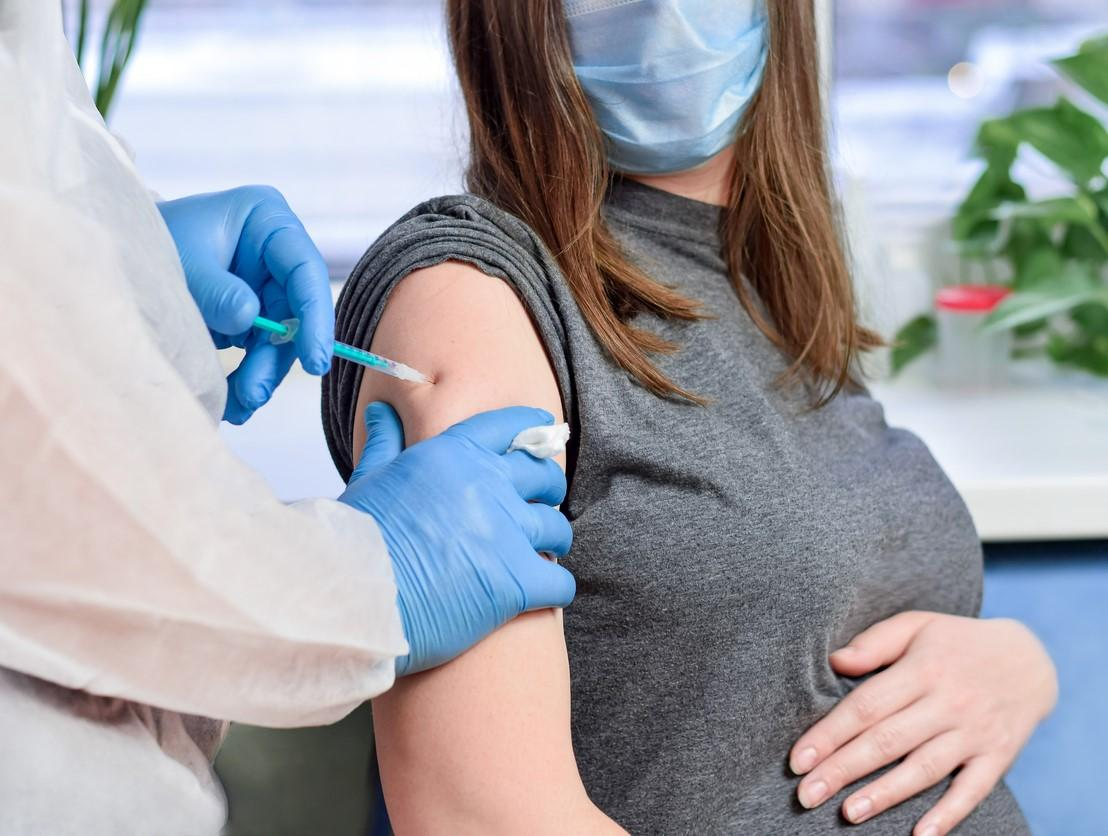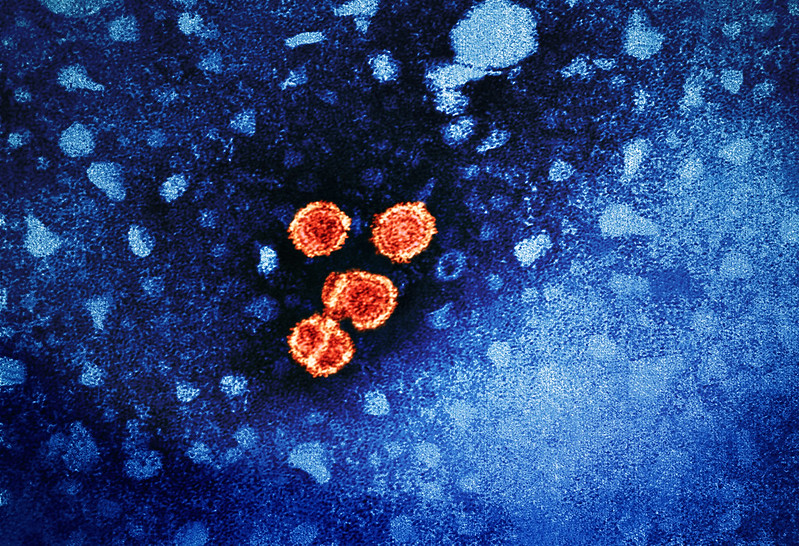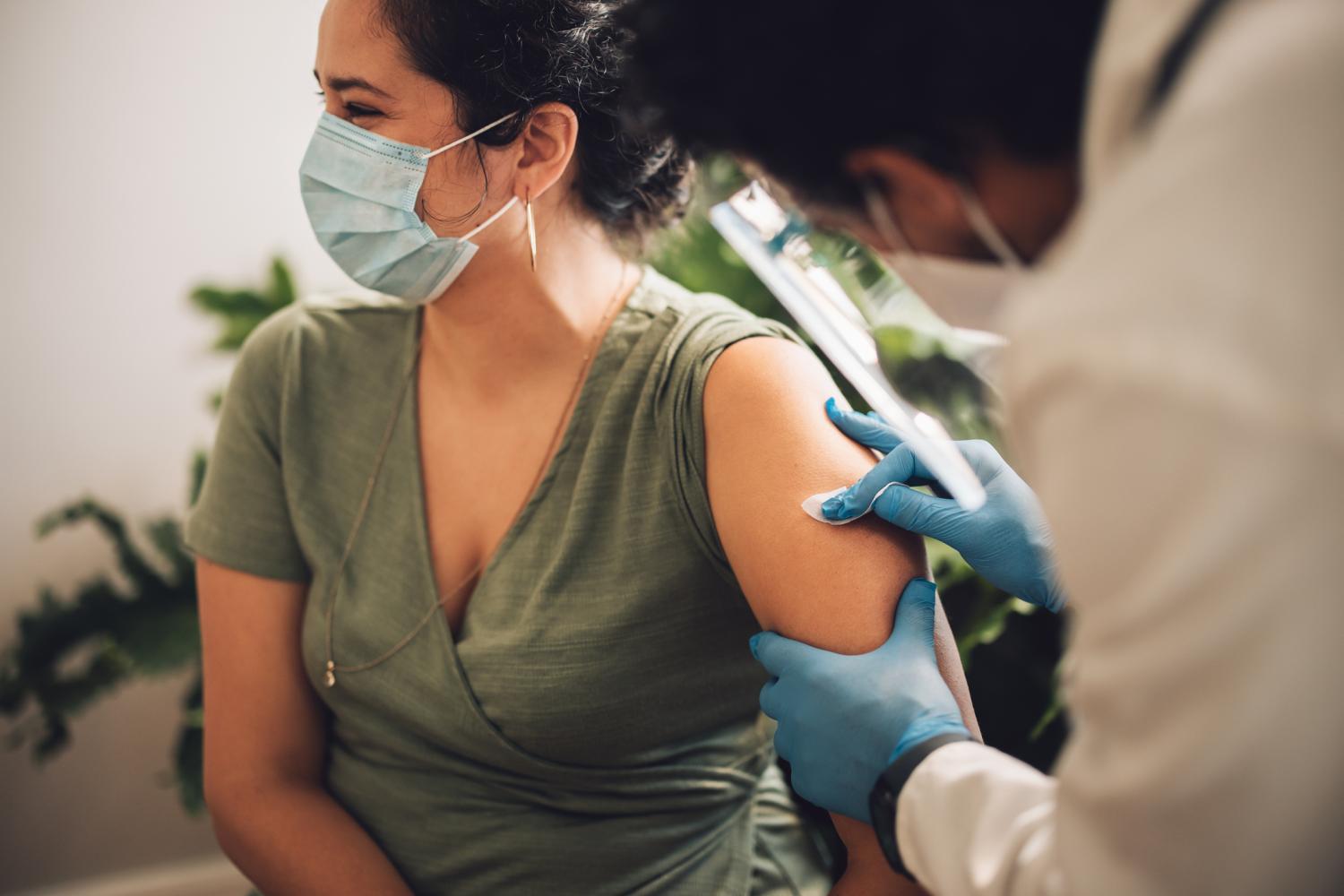
A new study details dramatically lower confidence in COVID-19 vaccine safety in pregnant and recently pregnant women in 2023 compared to 2021, despite evidence to the contrary, according to findings published yesterday in JAMA Network Open.
The study was based on responses given in two survey waves from 2021 to 2023, with 1,227 total respondents. Wave 1 took place from October 2021 to February 2022, and wave 2 took place from November 2022 to February 2023
Participants, members of the Vaccine Safety Datalink (VSD), were asked about their vaccination status, race, ethnicity, and preferred language, as well as whether they somewhat or strongly agree with the statement that COVID-19 vaccines are safe.
77% had at least one vaccine dose
Overall, 76.8% (95% confidence interval [CI], 71.5% to 82.2%) reported one or more COVID-19 vaccinations. All participants identified as female, and the average age was 31.7 years. A total of 356 (29.0%) identified as Black race, 555 (45.2%) identified as Hispanic ethnicity, and 445 (36.3%) preferred the Spanish language.
Spanish-speaking Hispanic women had the highest self-reported rate of any COVID-19 vaccination, 86.9% (95% CI, 82.0% to 91.8%) in wave 1, and 84.2% (95% CI, 80.4% to 88.1%) in wave 2.
The weighted estimates of somewhat or strongly agreeing that COVID-19 vaccines are safe decreased from wave 1 to 2 for respondents who reported having received at least one vaccine dose (76% in wave 1 compared to 50% in wave 2). Among non-Hispanic White respondents, the drop was from 72% to 43%; Spanish-speaking Hispanic respondents went from 76% vs 53%.
These differences, despite accruing evidence of COVID-19 vaccine safety in this high-risk group, are concerning for clinicians and public health officials.
"The general trends we observed among those who had received at least 1 COVID-19 vaccine and among racially, ethnically, and linguistically diverse groups are concerning," the authors said. "These differences, despite accruing evidence of COVID-19 vaccine safety in this high-risk group, are concerning for clinicians and public health officials."













